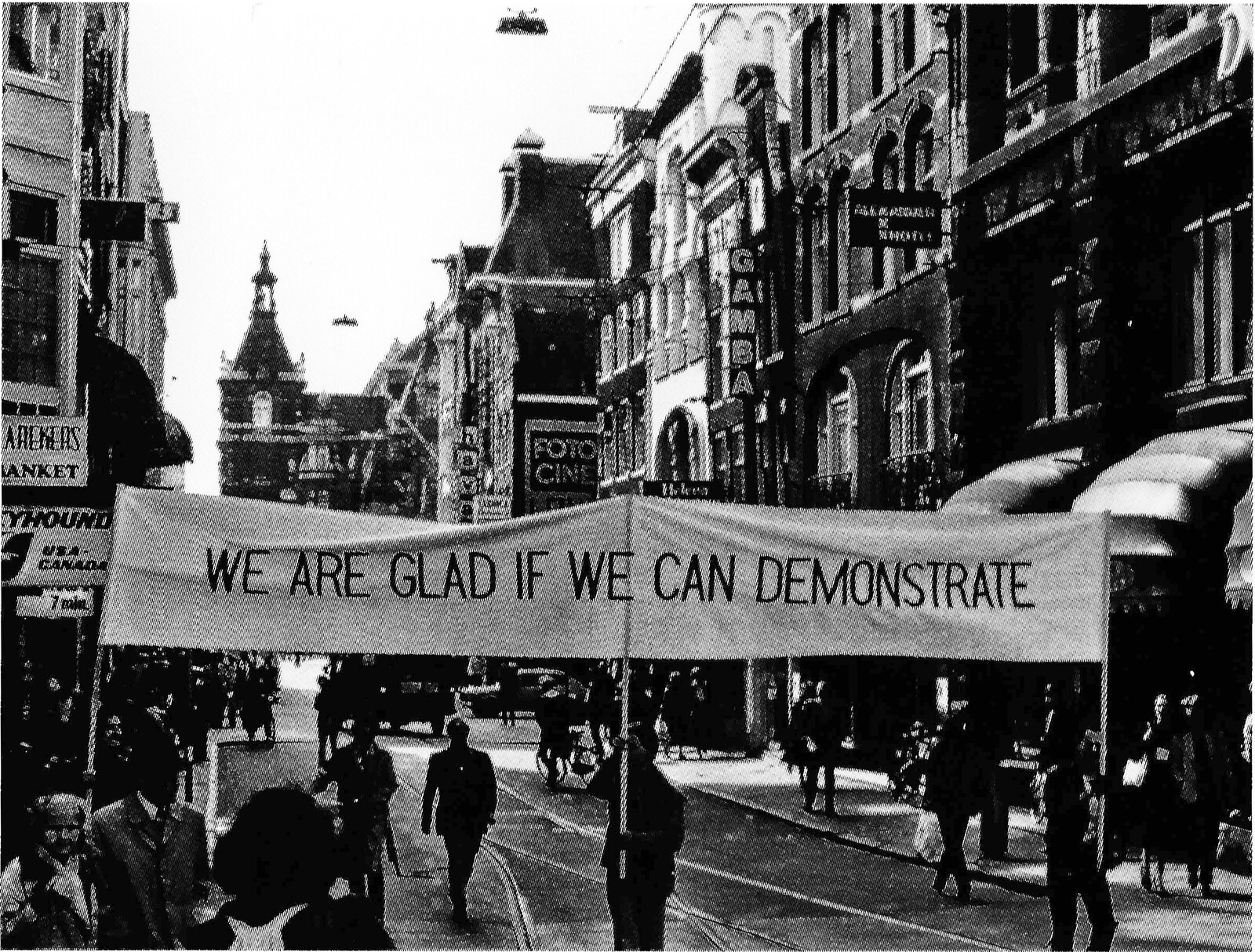Gaudiopolis 2017 – The City of Joy
September 29–November 5, 2017
HUB: Három Holló
Piarista köz 1 (entrance from Szabad sajtó út)
1052 Budapest
VENUES: mostly in Budapest and also in Dunaújváros, Eger, Nagykanizsa, and Pécs, Hungary
OFF-Biennale Budapest, the largest civil, independent arts initiative in Hungary, is proud to present its second edition entitled Gaudiopolis 2017 – The City of Joy.
OFF-Biennale does not apply for Hungarian state funding, and stays away from state-run art institutions. Unique among contemporary art biennials, it is a grassroots endeavor that is based on the self-organization and collaboration of artists, curators, other cultural and civil organizations, galleries, and students, among others. OFF-Biennale aims to strengthen the local independent art scene. It strives to take part in the social discourse on public issues and to enhance the culture of democracy by the means of art. It supports new artistic productions which otherwise would not be able to materialize in Hungary today. Settling in private apartments, vacant shops, industrial buildings, alternative theaters, and public places, it invites the public to explore the city. OFF-Biennale was not conceived by following international biennale patterns; it has been tailored—and will be re-invented each time—to best serve its local independent scene.
Gaudiopolis 2017 – The City of Joy
Gaudiopolis (1945–50), meaning “City of Joy,” was the name of a Children’s Republic founded in the aftermath of World War II in Budapest by Lutheran pastor Gábor Sztehlo. His orphanage provided shelter and home for hundreds of children regardless of their religion, social background, or nationality, who lost their parents and/or their homes to the war. Children dwelling in the “City of Joy” formed their own government, elected their representatives, and adopted laws that applied to everybody (including teachers). This mini-republic of trust, generosity, responsibility, and care serves as inspiration to both the projects and the working method of OFF-Biennale. It prompts us to reassess the implications of personal commitment, solidarity, education, community development, and the sustainability of democracy, as well as rethink, in this context, the potential role of children, playfulness, joy—and art.
Participants
Expanding the methodology of many large-scale events, OFF-Biennale’s curatorial team curates only a part of the program: besides commissioning and presenting projects, it also offers the possibility to stakeholders of the local scene to apply with projects through an open call process. The resulting program, presenting about 120 artists, is thus the common curatorial achievement of about 40 individuals and groups, and the biennale works as an umbrella that amplifies the voices of individual projects.
Noor Abed, Noor Abu Arafeh, Akademia Ruchu, Ádám Albert, Can Altay, Gábor Altorjay, Architecture Uncomfortable Workshop, Artmagazin, Orsolya Bajusz, Zbyněk Baladrán, Levente Bálványos, Taysir Batniji, Péter Bencze, Barna Benedek, Kata Benedek, Anca Benera & Arnold Estefan, Márton Bertók, Johanna Billing, The Board of the School of Free Printing, Andrea Bódis, Virág Bogyó, Lőrinc Borsos, Márta Branczik, Giulia Bruno, Imre Bukta, Tamás Buvári – Kinga Turós-Máté, Marvin Gaye Chetwynd, Anetta Mona Chişa & Lucia Tkáčová, András Cséfalvay, Dávid Demeter, Tamás Don, Róza El-Hassan, Sári Ember, Jumana Emil Abboud, Ágnes Eperjesi, Miklós Erhardt, Katalin Éri, Gábor Erlich, Katalin Erdődi, Ex-Artists’ Collective (Tamás Kaszás, Anikó Loránt), Gábor Fábián and Erna Gergelyi, Adrienn Fejes, Valér Fekete, Stano Filko & Alex Mlynárčik, finger group, Andreas Fogarasi, FreeDoc / Gabriella Csoszó, Márk Fridvalszki, Flóra Gadó, Tibor Gáyor, Kitti Gosztola & Bence Pálinkás & Fanni Hegedűs, Tomislav Gotovac, Ferenc Gróf, Ábris Gryllus – János Brückner – Márton Emil Tóth – Zsófia Tamara Vadas, Dávid Gutema, Katalin Haász, István Haász, Inas Halabi, István Halmi-Horváth, István Harasztÿ, Shuruq Harb, Nicoline van Harskamp, Mona Hatoum, Judit Hidas, Lili Hitka – Zsófia Kormos – Lia Lőrinczy – Dániel Helyes – Dénes Peták – Barnabás Zemlényi, Ane Hjort Guttu, Csilla Hódi, Andy Holden, Kristóf Kovács and the TELEP team, Danièle Huillet and Jean-Marie Straub, Adelita Husni-Bey, Binelde Hyrcan, Richard Ibghy & Marilou Lemmens, Sanja Iveković, Sven Johne, Nikita Kadan, David Karas, Ildikó Kele, Antal Kelle, Botond Keresztesi, Lara Khaldi and Eszter Szakács, Zsolt K. Horváth, Adám Kiss-Balbinat, Szabolcs KissPál, Ádám Kokesch, Július Koller, Csenge Kolozsvári, Eva Koťátková, Jiří Kovanda, Kata Krasznahorkai, Krisztián Kristóf, KwieKulik, László (Lafu) Ladány and Syporca Whandal, Antal Lakner, László Lakner, Little Warsaw, Gergely László (Tehnica Schweiz) – Katarina Šević, Eszter Lázár and Edina Nagy, Armin Linke, Péter Lowas, Virág Lődi, Virág Major, Mihály Maljusin, Alexander Manuiloff, Ferenc Margl, Andor Maruzsenszki, Dóra Maurer, András Mengyán, Szilárd Miklós, Dávid Mikulán, Csaba Molnár, Gyula Muskovics and Andrea Soós, Annamária Nagy, Csilla Nagy, Zsófi Nagy, Judit Nem’s, Csaba Nemes, Lilla Neményi, Jüri Okas, Márton Pacsika, Daniela Patti – Levente Polyák, Neša Paripović, Ewa Partum, Manuel Pelmuş, Gergő Pintér, Joanna Piotrowska, Pneuma Szöv., Áron Porteleki, Krisztián Puskár, Khalil Rabah, Bea Piros Rostás, Vanda Sárai, Péter Sarkadi, János Saxon-Szász, Andi Schmied, Kati Simon & Zsolt Vásárhelyi, Eszter Sipos and Csaba Árpád Horváth, Slavs and Tatars, Borbála Soós, Mladen Stilinović, Lana Stojićević, Students of the course How to Make a Work of Art, Subversive Film, János Sugár and Balázs Byron Horváth-Kertész, Márton Szarvas, Lilla Szász, Katalin Székely, Viktor Szeri, Kamilla Szíj, Kornél Szilágyi, Hajnal Szolga, Beatrix Szörényi, Péter Szörényi, Erika Szurcsik, Gustave Tiger, TPSRPRT, tranzit. hu, Dominika Trapp, Olja Triaška Stefanović, Hajnalka Tulisz, Endre Tót, Balázs Máté Tóth, Zsuzsanna Tóth, Csaba Vándor, Emese Váradi, András Wolsky, Piotr Wysocki – Dominik Jałowiński
Team
Leader of OFF-Biennale: Hajnalka Somogyi
Curators: Nikolett Erőss, Róna Kopeczky, Lívia Páldi (2016), Hajnalka Somogyi, Eszter Szakács, Borbála Szalai, Katalin Székely
Art mediation: Nóra Böhler
PR and Communication: Gabriella Rothman, Gergely Nagy
Archive: Zoltán Dragon
Financing and Administration: András Bognár
For the detailed program and more information, please visit the OFF-Biennale’s website.
Main supporters
The main cooperation partner of this year’s OFF-Biennale is GfZK – Museum of Contemporary Art Leipzig. The cooperation project is funded by the German Federal Cultural Foundation.


